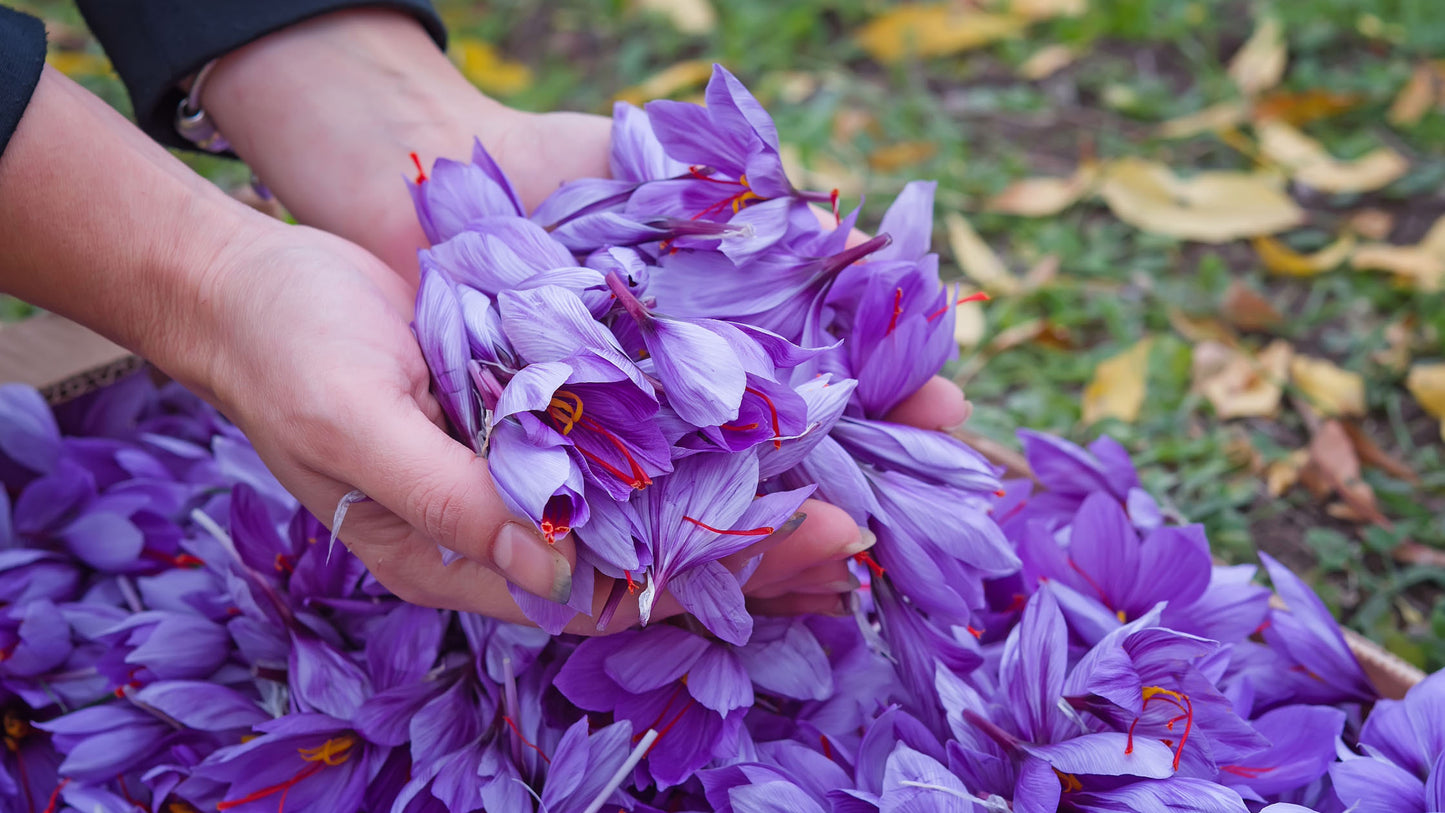Offer
Provide additional details about the offer you're running.

Here are five essential things you should know about this golden spice.
Saffron comes from the stigma of the Crocus sativus flower, commonly known as the saffron crocus. Cultivating saffron is a labor-intensive process that requires meticulous care and attention to detail. The majority of the world's saffron production comes from regions with specific climatic conditions, such as Iran, Spain, and Kashmir. In these regions, saffron cultivation is deeply rooted in tradition, with generations of farmers passing down their knowledge and expertise.
Saffron owes its distinct aroma, flavor, and color to its unique chemical composition. The primary bioactive compounds found in saffron include crocin, picrocrocin, and safranal, each contributing to its characteristic properties. Crocin is responsible for saffron's intense color, while picrocrocin gives it a bitter taste. Safranal, on the other hand, is responsible for saffron's aromatic fragrance. Additionally, saffron contains antioxidants and other beneficial compounds that contribute to its health-promoting properties.
Saffron is a versatile spice that adds depth and complexity to a wide range of dishes. Whether used in savory or sweet recipes, saffron imparts a unique flavor profile that elevates the taste of any dish. From savory rice dishes like paella and risotto to decadent desserts like saffron-infused ice cream and pastries, the possibilities are endless. Saffron is also a key ingredient in traditional beverages such as saffron-infused tea and golden milk, known for their soothing properties.
Beyond its culinary uses, saffron is revered for its numerous health benefits. Studies have shown that saffron possesses antioxidant, anti-inflammatory, and mood-enhancing properties. It has been used in traditional medicine for centuries to treat various ailments, including depression, anxiety, and insomnia. Saffron is also believed to aid digestion, improve memory, and boost immunity. Incorporating saffron into your diet can be a delicious way to enhance your overall well-being.
When purchasing saffron, it's crucial to prioritize quality and authenticity. Due to its high value, saffron is often subject to adulteration and fraud, with inferior products being passed off as genuine saffron. To ensure you're getting the real deal, look for saffron that is sourced from reputable producers and certified for purity and quality. Dorreen Saffron, for example, is known for its exceptional quality and authenticity, with each strand carefully selected and sourced from trusted suppliers.
In conclusion, saffron is much more than just a spice—it's a treasure trove of flavor, aroma, and health benefits. By understanding its origin, composition, culinary uses, health benefits, and the importance of quality, you can fully appreciate the magic of saffron and incorporate it into your life in meaningful ways. Whether you're cooking up a gourmet feast or seeking natural remedies for better health, saffron is sure to delight your senses and nourish your body and soul.